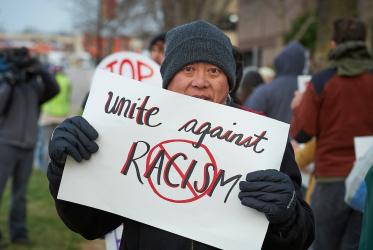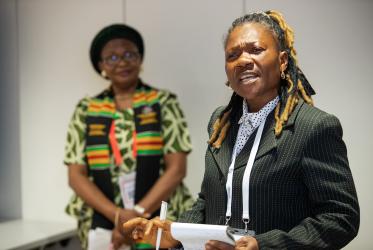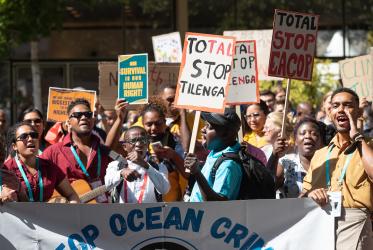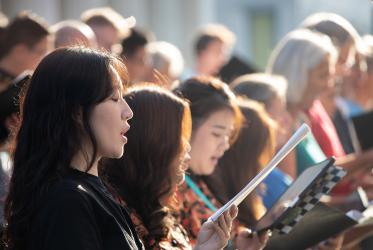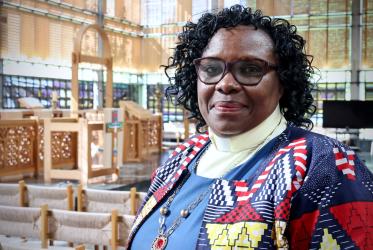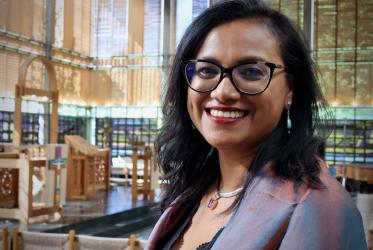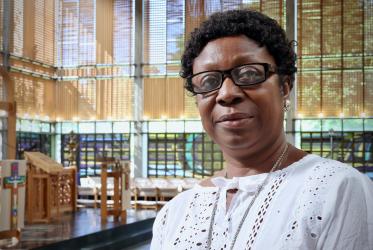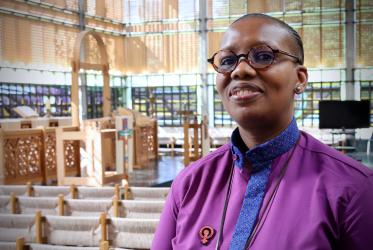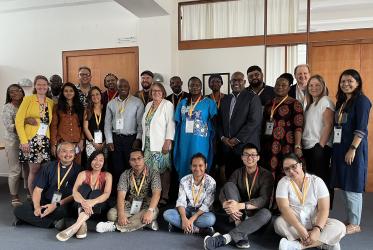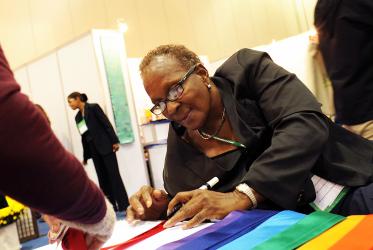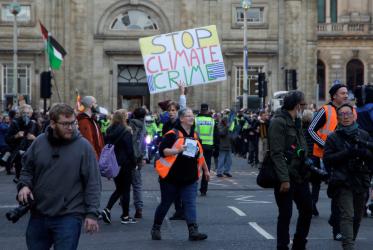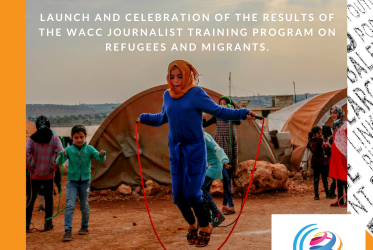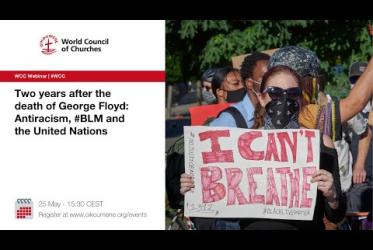Displaying 141 - 160 of 989
19 September 2022
Pan-African women tell stories that celebrate who they are
15 September 2022
Multifaith advocacy for the climate: Not really much time left
04 September 2022
God’s Creation is celebrated in a gathering of waters
01 September 2022
Rev. Edna Navaya: “We’ll be able to transform the church”
04 August 2022
GEM School grounds economic justice biblically
06 July 2022

